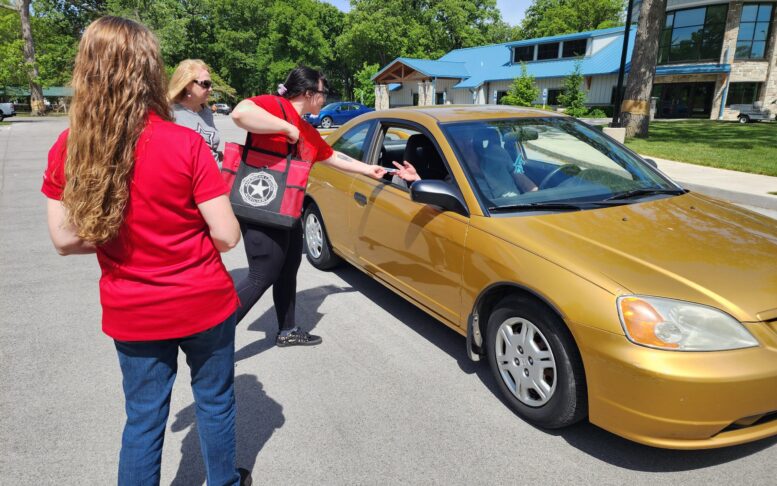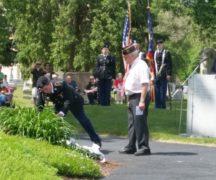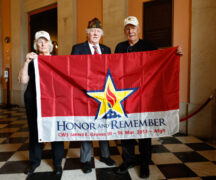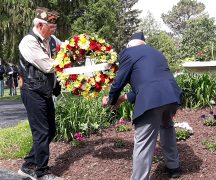By JAN LARSON McLAUGHLIN
BG Independent News
For more than a century, the poppy has been a symbol of sacrifice on the battlefield. The bright red paper replicas have long been handed out before Memorial Day and worn proudly on lapels or hung from rearview mirrors.
The significance of poppies may have faded in recent years, but not to the women from Bowling Green American Legion Auxiliary Unit 45 who handed out the paper poppies Saturday morning at City Park.
To them, the sacrifices of soldiers are still remembered.
“My grandfather died in World War II,” and her father served in Vietnam, said Christine Mockensturm. “By wearing this it gives the public the idea of what our veterans sacrificed for us.”
It took her dad many years to learn how to accept being honored for his service in Vietnam, she said.
“In his memory, I can be a part of this,” Mockenstrum said.
Her daughter, Ashley Mockensturm, a student at BGSU, joined her grandma in the legion auxiliary when she was a teenager. “It’s meant a lot to my grandma,” she said.
For Tammy Firsdon, her two grandfathers served in World War II, and her father and two uncles served in Vietnam. “Everyone came home,” she said.
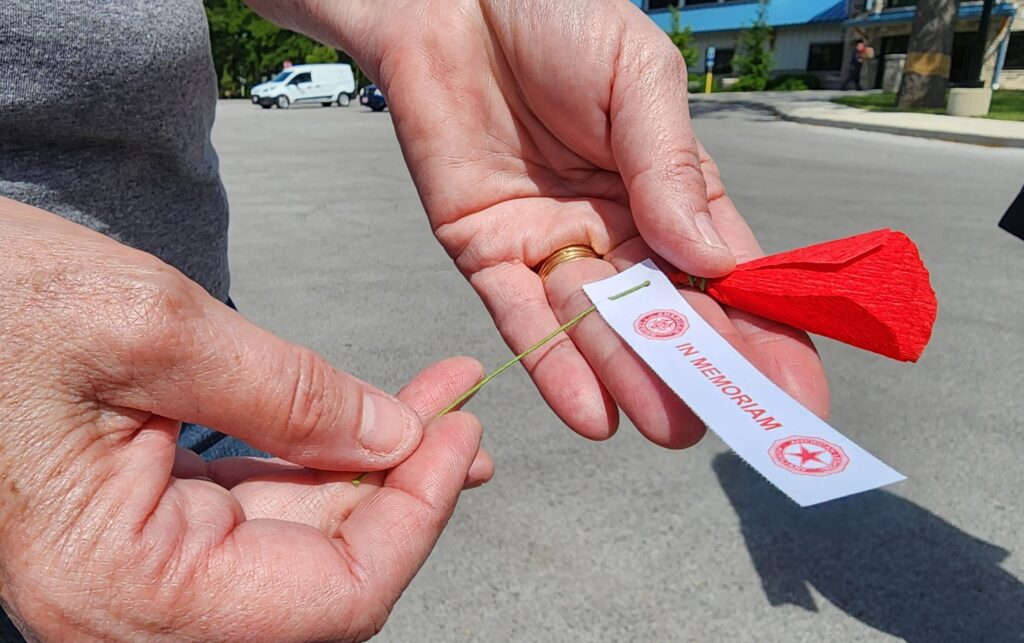
When Firsdon was 7 years old, her grandma gently pushed her into working with the American Legion Auxiliary, where she was chosen one year as “Miss Poppy.” That was 53 years ago, and she continues to show respect to those who served.
While the women want people to remember those who sacrificed, they also want people to never forget the atrocities of war.
“I don’t want another large war to make this more relevant,” Christine Mockensturm said.
She would like to see the public remember the lives lost – without linking them to the political causes for war.
“Veterans are people, just like us,” with many of them being drafted into service, she said, recalling her dad’s stories of people spitting on his shoes when he returned home from Vietnam. “Just because they served doesn’t mean they agreed with the government.”
The significance of the poppies was not lost on Allan Chamberlain as he took one of his regular walks around City Park on Saturday morning. His father served in the U.S. Army under General George Patton during World War II.
His dad, Jim Chamberlain, was at the Battle of the Bulge shortly after one of the worst battles of the war. “That was one of the bloodiest days,” he said.
Chamberlain had no cash on him to donate for the poppy. “I wish I had something to give them,” he said.
But the auxiliary members were just glad to hand out another poppy that could tell the story of sacrifice. After two hours of passing out poppies to those who drove by in the park, they acknowledged the number of people stopping for poppies was low.
“But those who did come by have been very generous,” Christine Mockensturm said.
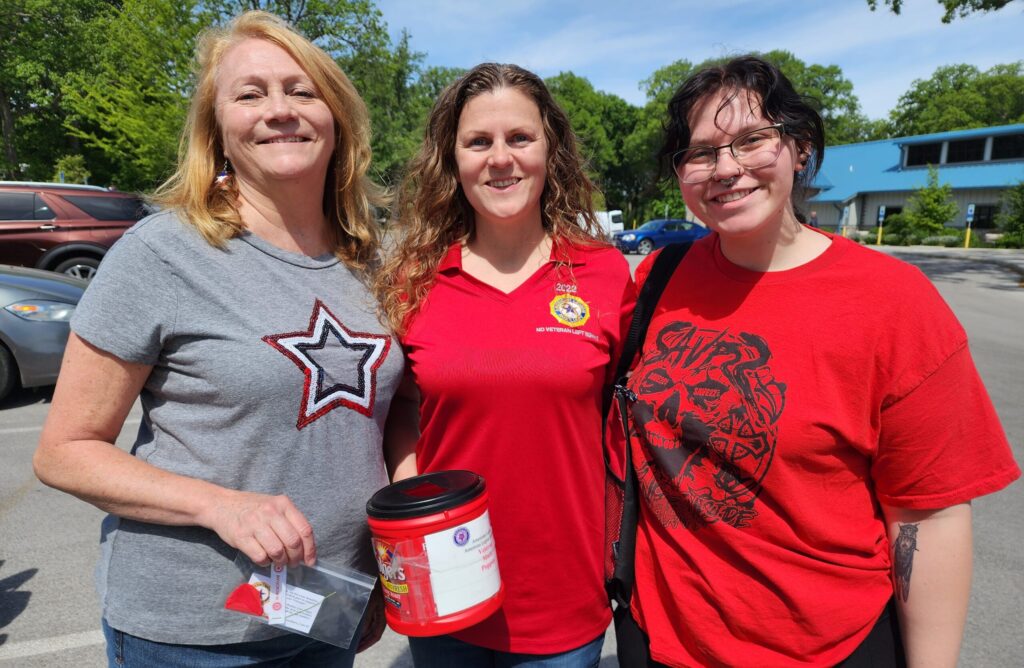
The money collected will go to the Sandusky Veterans Home and the Toledo VA, Firsdon said. The paper poppies were handmade by the veterans at the Sandusky facility, she added.
After the poppy drive-thru, the women were headed to the cemeteries of their loved ones to place the red flowers on the graves of those who served. And they hope people will remember the sacrifices on Monday.
“Memorial Day isn’t a day just to have a barbecue,” Ashley Mockenstrum said.
————–
Poppies became a symbol of sacrifice after “In Flanders Fields” was written during World War I by Canadian physician Lt-Col. John McCrae. He was inspired to write the poem on May 3, 1915, after presiding over the funeral of friend and fellow soldier Lt. Alexis Helmer, who died in the Second Battle of Ypres.
The poem’s references to the red flowers that grew over the graves of fallen soldiers resulted in the poppy becoming a recognized memorial symbol for soldiers who have died in conflict.
In Flanders Fields
By John McCrae
In Flanders fields the poppies blow
Between the crosses, row on row,
That mark our place; and in the sky
The larks, still bravely singing, fly
Scarce heard amid the guns below.
We are the Dead. Short days ago
We lived, felt dawn, saw sunset glow,
Loved and were loved, and now we lie,
In Flanders fields.
Take up our quarrel with the foe:
To you from failing hands we throw
The torch; be yours to hold it high.
If ye break faith with us who die
We shall not sleep, though poppies grow
In Flanders fields.

